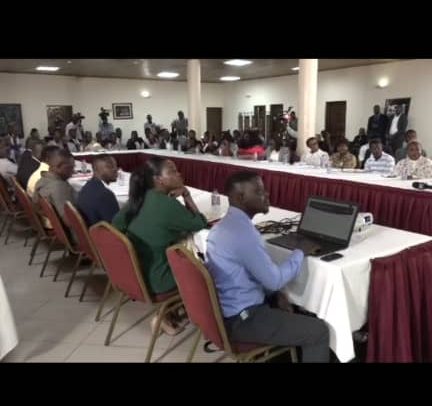The Institute for Liberty and Policy Innovation (ILAPI), a prominent research and policy advocacy group, is urging the Bank of Ghana (BoG) to review its policy regarding dormant individual accounts.
ILAPI claims that the current policy, which mandates the transfer of funds from dormant accounts to the BoG’s account after a certain period of dormancy, is depriving and unfair to the families of deceased account holders.
Under Act 930, Section 143(6) of the Bank of Ghana’s policy, banks are required to transfer funds from accounts that have remained dormant for a specified period. The intention behind this policy is to ensure the proper management and utilization of dormant funds. However, ILAPI argues that this practice creates hardships for the families of deceased individuals, who may be unaware of the dormant accounts and subsequently lose access to their rightful inheritance.
The Executive Director for ILAPI, Peter Bismark Kwofie, raised the issue at a high-level policy dialogue patronised by lawyers, religious leaders, bankers, insurers as well as reps from SSNIT, Birth and Death Registry and AGs office under the theme, “Reducing Family Poverty via the use of Next of Kin”.
ILAPI emphasized the need for a comprehensive review of the policy, taking into account the concerns of affected families. The advocacy group believes that a more balanced approach should be adopted to protect the interests of both the banking system and the deceased account holders’ families.
The Executive Director expressed his concerns over the current policy, stating, “While we appreciate the importance of managing dormant accounts, it is equally crucial to consider the rights and needs of the deceased account holders’ families. The current policy not only deprives them of their rightful inheritance but also adds to their emotional and financial burdens during an already difficult time.”
He has therefore called upon the Bank of Ghana to establish a mechanism through which the families of deceased account holders can be notified and given an opportunity to claim the funds before they are transferred to the BoG’s account. This would enable a more compassionate and fair resolution for all parties involved.
The Institute for Liberty and Policy Innovation has been actively engaged in research and advocacy work on various policy issues in Ghana. Its latest call for a review of the Bank of Ghana’s policy on dormant accounts aims to bring attention to the potential injustices faced by families in such circumstances.
As of now, the Bank of Ghana has not issued a response to ILAPI’s call for a review. However, with growing public interest and pressure from advocacy groups, it remains to be seen whether the bank will consider revising its policy to address the concerns raised by ILAPI and affected families.
The Member of parliament for Madina and human rights lawyer, Francis Xavier Sosu, for his part said the situation is more difficulty when the deceased properties unclude estates given the associated legal procedures thereby prolonging the process for years. The lives of beneficiaries according to him deterriorate in the course due to the huge financial costs involved such many beneficiaries are unable to afford. He to this end urged all to put hands on deck towards bringing about the proposed reforms for the good of all.
A resource person from Voxtua Legal Services, lawyer Ebenezer Isaac Teye Nubuor, took his turn to laud the advocacy, he however believes that wating for a nationwide consultation towards such reforms will constitute waiting till eternity and suggested that financial institutions should be asked to specify the duration after which the next of kin of an accountholder should be contacted in respect of dormant account as one surest step towards beginning the proposed reforms.
Participants at the all important dialogue in unison agreed that even though the Intestate Sussession Law, PNDC Law 111, came to address some of the challenges that bedevil inheritance in Ghana, administrative barriers continue to deprive eligible beneficiaries of their inheritance and agreed to lead the charge towards the desired ammendments.


